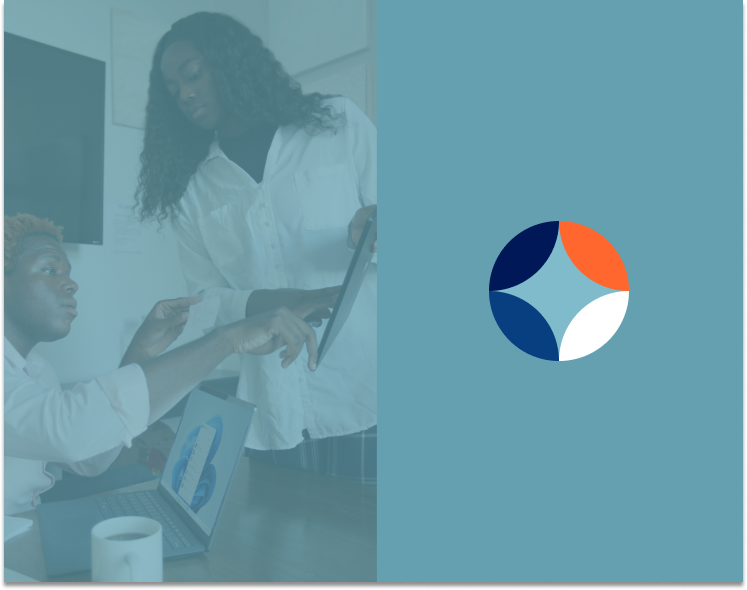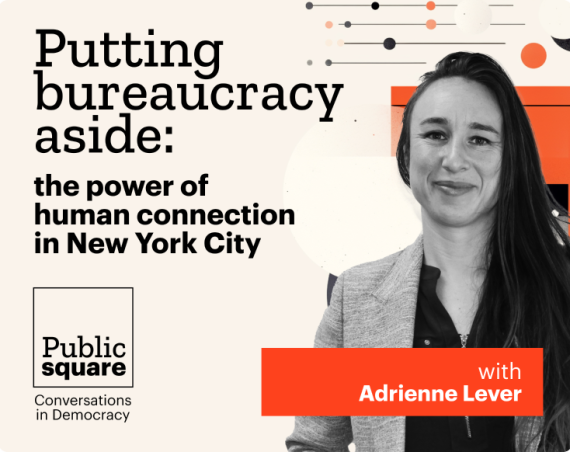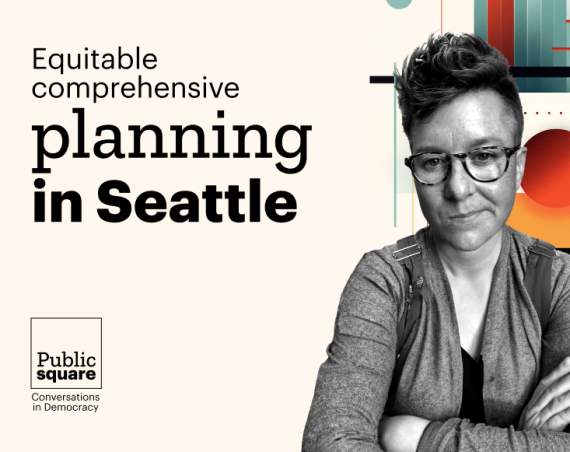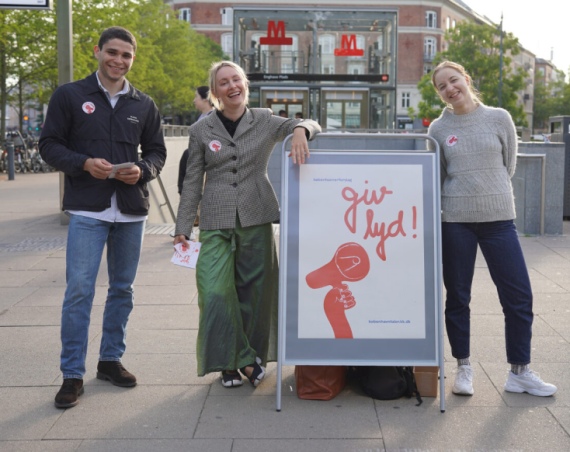2020 didn’t quite turn out as planned. This year should have been the year where we celebrated our 5th birthday with a bash and launched our first global conference. Instead, it was a year where we collectively had to reinvent the way we work, the way we connect and the way we engage with governments. It was also the year where citizen participation finally became mainstream.
In many ways, it has been a challenging and fascinating ride. We are proud to have worked alongside local governments to foster democratic innovation. We are also full of excitement to continue this participatory wave in 2021, and start thinking about participation in the post-COVID era. Here’s what we’ve learned along the way, and what we’re planning to change in 2021.
What we’re celebrating
Over the past 11 months, deliberative democracy shifted from physical meetings to digital spaces, and the world witnessed a surge in political engagement—from a huge voter turn-out in the US elections to debates about decolonizing the public space. This translated into increased activity on our platforms: 735,000 citizens participated on our platforms this year, up from 200,000 last year. This resulted into 2,000,000 votes, 330,000 comments, 135,000 ideas, and 4,250 bottom-up initiatives.
We also started measuring our social impact via our Theory of Change, and just released our first impact report. One number stands out for us: 91% of the users we surveyed reported that CitizenLab is a safe and accessible space for dialogue and information, which positions our e-democracy platform as an antidote to social media platforms characterized by polarization and fake news.
We also noticed that participatory governance started to expand beyond governments. Although we usually focus on the citizen-government dialogue at CitizenLab, we noticed a spike in so-called “civic organizations” that started to transform their governance. Ranging from political parties (CD&V in Belgium and LibDems in the UK), over universities and NGOs, to even football clubs (KV Mechelen’s fan base), these organizations are committed to re-inventing what it means to be a member of a community and how decisions are made. It is still early-days terrain for us, but we are sure to see some exciting, large-scale use cases emerge in 2021.
Online workshops replaced town hall meetings and offline gatherings. In the spring of 2020, we launched online workshops module—combining video, meeting scripts, and engagement methods into one single tool— to help our clients efficiently move their townhall meetings online without losing the quality and depth of offline discussions. The feature saw a rapid uptake by our clients, and we believe it’s a step in the right direction for digital democracy.
Finally, our team doubled in size to 35 people, and we opened an office in the US. We welcomed +15 new colleagues, from 9 different nationalities to our team. Whilst we worked predominantly in Europe over the past few years, it was a major milestone for CitizenLab to open an office in the US, get its first three American cities to use CitizenLab, and welcome Beth Noveck as President of our Board of Directors.
What we’ve learned
Despite these positive signals, there is still a lot to do before we achieve our mission of “ensuring inclusive, participatory, representative and responsive decision making” (SDG16.7) at scale.
Our impact report shows that although policy-makers have noticed a significant change in openness to sharing power, citizens still fail to see how their input impacts decision-making. In 2021, we need to focus on helping governments communicate more clearly how citizen contributions are making a difference.
We know we have also underestimated how working in less connected countries, with large parts of the population having limited digital access, requires a different solution. SMS participation is for instance a must to make public participation inclusive.
And, last but not least, we want to aim for a more in-depth engagement. Balancing thin engagement, focused on reaching broad audiences, vs. thick engagement, focused on high-quality deliberative processes, is another tricky dilemma we’re constantly facing. We aim for the blend of both, and want to prove that the one shouldn’t come at the cost of the other.
What’s on the planning for 2021?
1. Building an academy and a community of governments.
Five years of work in online participation has taught us a lot, and it’s time for us to share these learnings more widely. We want to democratize domain knowledge in public participation and facilitate peer-to-peer exchanges between governments from different countries. Participatory governance becoming the rule rather than the exception, and we want to help public servants get the skills they need to bring digital democracy forward.
2. Developing new e-deliberation features.
We’re looking forward to embedding deliberation more deeply into our participation functionalities. We’re huge believers of blending real-time, face-to-face, and small-group discussions into broader projects. A better argumentation structure, a broader set of (nuanced) voting tools, and the further development of online workshops for face-to-face deliberative processes are all on our roadmap for this year. We’ll have the help of a PhD researcher from the university of Leuven.
3. Opening up access to the platform.
As our participation platform reaches a high level of maturity and stability, we want to open up access to it, especially to smaller organizations who can’t afford it today – think of civic causes, small municipalities, and alike. We can’t say much more for now, but we will be coming with an important announcement on this topic in March. We also want to ease integrating our platform into the ecosystem of tools that governments are already using, and plan to launch a marketplace of plug-ins in the second half of the year.
4. Linking public participation to policy-making.
Our Insights module helps public servants to process citizen input efficiently through our own AI-assisted text analytics. Eliminating the time spent in Excel spreadsheets for public servants is one goal. Our broader goal is ensuring that participation informs actual decision-making and making citizens feel heard. We will be developing features to share the automated reports with participants and link their input to larger policy plans. Eventually, citizens understand at a glance how their input is being processed and how it impacts decision-making.
5. Growing a network of international partners.
We want to keep our focus on what we’re best at: building the best possible online participation platform. We’ve started working with local partners in Chile, Denmark, Mexico, Argentina, Brazil, Poland, Romania. Our partners are better facilitators, have a wider network in the public sector, are specialized in domains such as urban planning or mobility, and understand the local political context much better than we ever could. We will continue shaping partnerships with consultancy agencies, professional facilitators, and entrepreneurs who want to bring CitizenLab’s mission to their country. Should you be interested in joining our partner network, please get in touch with us.
6. Nurturing an inclusive culture of creativity and fun at work, despite the circumstances.
This one’s more for us internally, but it deserves at least as much attention as the first five points. We all miss seeing each other around the office, miss spontaneous chats at the coffee machine, brainstorms around the whiteboard, or glorious after-works. We’re very committed to building an inclusive workplace, promoting creativity and fun at work. We feel this is even more important in times dominated by online communication, when we risk to lose ourselves in the day-to-day urgencies and forget to dream, to re-invent, and to plan for the long haul. We have launched initiatives such as our “10% project” (dedicating 10% of our time per week to personal projects and personal learning), a company book club, and a program for mental well-being.
We can’t wait!
Join us in 2021
One thing is for sure: we won’t be able to do all of this ourselves. That’s why we are currently looking for 10 colleagues in different positions to develop our workshops module, grow the community around our platform, help design participation strategies with governments in the Netherlands, grow our network of cities in the US, and more. Check out our jobs page to see our current openings – and keep in mind that more jobs will come online in the coming months.
CitizenLab is an equal opportunity employer, committed to building a diverse and inclusive workplace. We don’t just accept difference – we celebrate you being who you are for the benefit of our organization, our platform, and our community.





